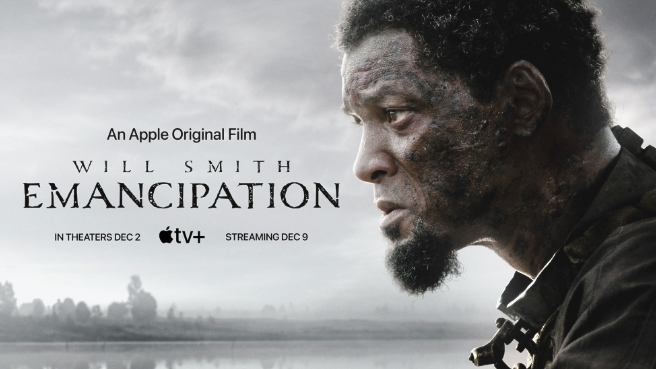The first full-length trailer for the upcoming movie Emancipation has been made available on Apple TV+. The historical tale, which stars Will Smith, was influenced by the 1863 photographs of “Whipped Peter” that were taken during a Union Army medical examination and initially published in Harper’s Weekly.
The movie Emancipation, played by Smith, is described as telling the “triumphant narrative of Peter, a man who escapes from slavery, relying on his wits, strong faith, and deep love for his family to dodge cold-blooded hunters and the merciless marshes of Louisiana on his search for freedom.”
The Academy Award-winning actor provided more information about his choice to take on the demanding role during a film screening in October.

According to The Hollywood Reporter, Smith stated, “I’ve turned down several movies that were about slavery during my career. I never intended to display ourselves in that manner. And suddenly this image appeared. This movie does not deal with slavery. This movie is about having freedom. This movie is about perseverance. This movie deals with faith.
“This is a video about a man’s heart – what can be dubbed the first viral image,” he concluded. The picture of Peter being whipped had just been made possible by the invention of cameras. The tale erupted and flourished in my heart, and I wanted to be able to tell it to you in a way that only Antoine Fuqua could. It was a rallying cry against slavery.
On December 2, Emancipation will have its theatrical debut. On Dec. 9, the next week, it will be accessible worldwide on Apple TV+. Emancipation was produced and directed by Fuqua from a screenplay by William N. Collage.
Fuqua told Vanity Fair staff writer Chris Murphy that when some small children were born, Barack Obama was the first head of state they had ever seen. “If we begin our history there, we will forget the entire past. We disregard Martin Luther King, Jr. We disregard Malcolm X. We tend to forget about all of our great historical leaders. Do we still remember Nelson Mandela? In order to go forward and begin the healing process, we must revisit the past and have conversations about it.

